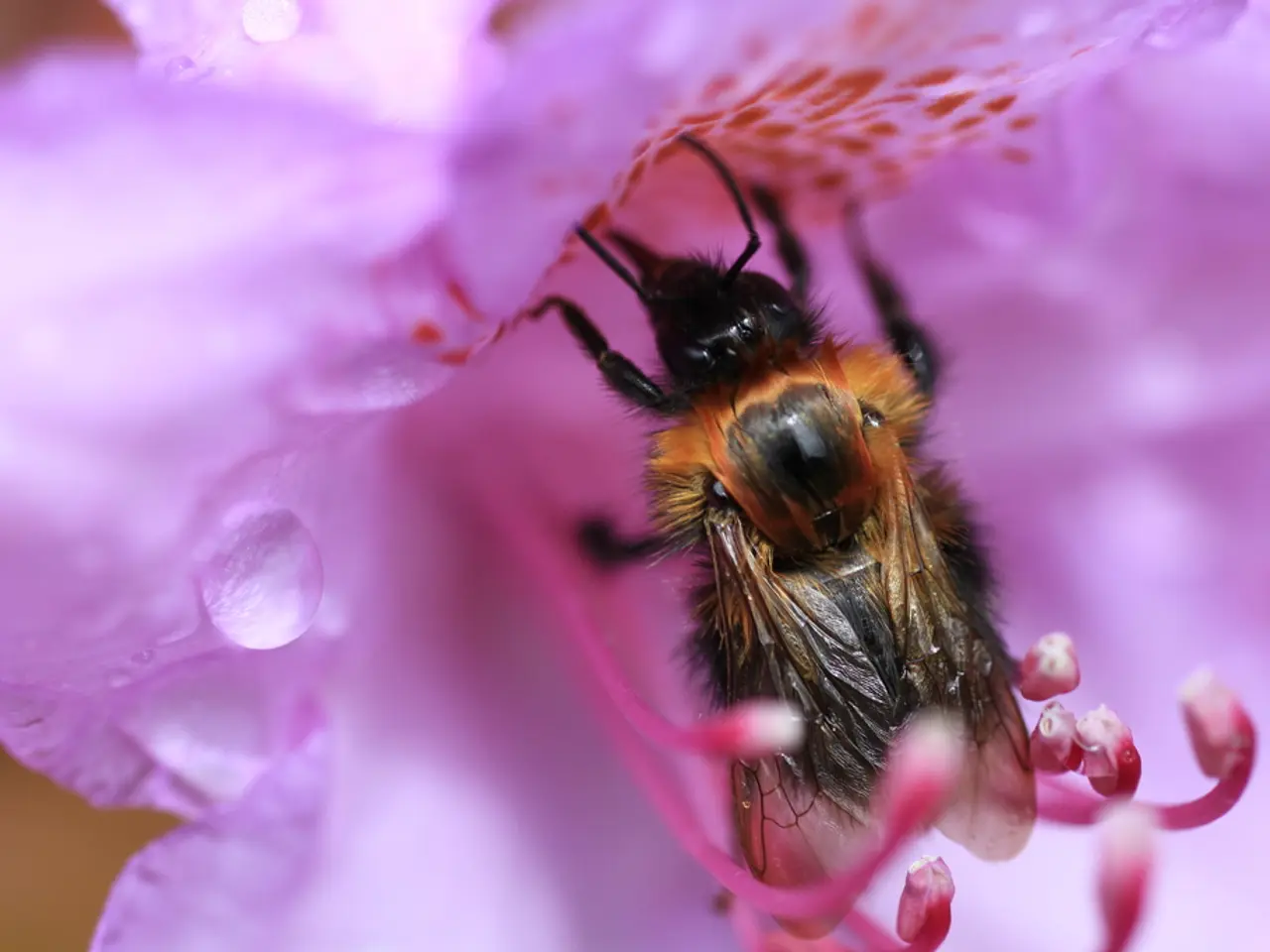Bee Pollen: Powerful Nutrient-Packed Food with Impressive Health Benefits
Discovering the Health Benefits of Bee Pollen
Bee pollen, a nutrient-rich superfood, is gaining popularity for its potential health benefits. This golden granule, collected by beekeepers, is packed with essential vitamins, minerals, amino acids, and antioxidants that support the immune system, boost energy levels, and enhance overall vitality.
Bee pollen acts as a natural multivitamin, providing a wealth of nutrients that can be incorporated into one's diet for overall health and well-being. Its enzymes aid in digestion and act as a natural probiotic, promoting the growth of beneficial gut bacteria and supporting a healthy digestive system.
More research is needed to fully understand bee pollen's effectiveness as a natural remedy for seasonal allergies. Preliminary studies suggest that bee pollen can help alleviate allergy symptoms by building up the immune system's tolerance to local pollen.
For those looking to maximize the health benefits of bee pollen, there are a few key points to consider. Start with small doses to monitor tolerance, especially if you have pollen allergies. Consume raw or minimally processed bee pollen to retain the most nutrients, including vitamins, amino acids, antioxidants, and enzymes. Regular intake, such as part of your breakfast, supports energy, immune system adaptation, and overall resilience throughout the day.
Mixing bee pollen with hydrating liquids, such as water, juice, or broth, can improve digestion and nutrient absorption. It's generally recommended to consult a healthcare professional before incorporating bee pollen into one's diet during pregnancy or while breastfeeding. Bee pollen allergies are possible, and individuals with bee sting allergies or other bee product allergies should avoid bee pollen.
Bee pollen's antioxidants can help combat free radicals and reduce inflammation, improving skin health and producing a more youthful complexion. Additionally, bee pollen has been found to be effective in helping with weight loss by boosting metabolism, decreasing appetite, and increasing fat burning.
In summary, to get the most health benefits, consume raw bee pollen daily in small, increasing amounts, mixed with foods or drinks, and avoid if allergic. This approach helps unlock its full nutritional and immune-supportive potential. Bee pollen is collected by beekeepers using special traps attached to the entrance of beehives, and the collected pollen is then dried at a low temperature to preserve its nutritional value.
- News reports have been highlighting the potential health benefits of technology-aided bee pollen collection methods, making the process more efficient and sustainable.
- A recent study in the field of nutrition revealed that combining bee pollen with CBD oil can reduce stress levels and improve sleep quality, offering synergistic health benefits.
- In the world of health-and-wellness, bee pollen supplements are increasingly being used as part of fitness-and-exercise routines to support muscle recovery and enhance performance.
- Therapies-and-treatments utilizing bee pollen may hold promise for patients with chronic inflammatory conditions, such as arthritis and asthma, by reducing inflammation and boosting immunity.
- Music therapists have begun incorporating bee pollen into their sessions, reporting improved focus and energy in patients during sessions, suggesting a new application for the superfood in the realm of mental health and wellness.
- The science community continues to investigate the potential of bee pollen as a sustainable source of food, with teams examining its ability to help address food shortages and improve overall global nutrition.




